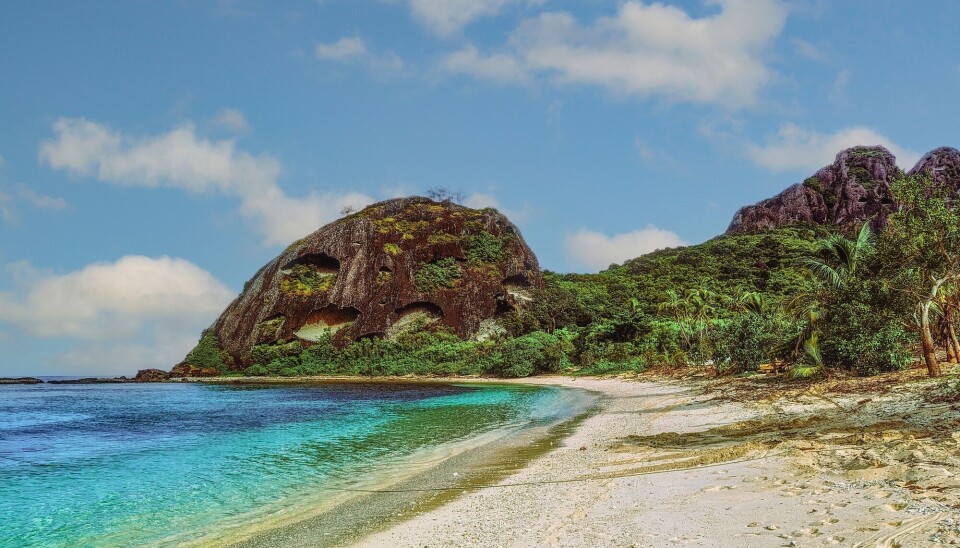
Why doesn't the world have a climate police force?
We know we need to take care of the planet, but not all countries are willing to contribute. Why can't they be punished?
The Paris Agreement is an important treaty aimed at encouraging countries to pollute less.
But what happens if countries do not follow the agreement? Can they be punished?

Everyone must agree
In Norway, you can sue the state if it does something harmful to the climate.
In fact, the Constitution states that nature must be protected for future generations.
If a company dumps toxins into the fjords, this violates that law.
"But this doesn't exist internationally," says Håkon Sælen. He researches climate policy at CICERO Center for International Climate Research.
The countries of the world have not agreed to establish a 'climate police.'
And as long as countries do not agree on it, we will not have one.
This makes it harder to achieve climate and environmental cooperation globally than it is within a single country.

"If a country harms the environment in another country or in the ocean, they can be punished even if they're not part of an agreement," says Christina Voigt. She researches international environmental law at the University of Oslo.
One example could be dumping garbage in the ocean, which is illegal.
The Paris Agreement
The goal of the Paris Agreement is for all countries in the world to unite to address human-caused climate change.
196 countries have signed the agreement.
They have agreed to keep the Earth's temperature increase below 2 degrees Celsius compared to pre-industrial levels, before the rise of large factories in the late 1700s and into the 1800s.
According to the agreement, the aim is to keep the temperature increase below 1.5 degrees Celsius.
In 2025, the agreement will be ten years old, but there is still a long way to go to reach the goal.
"What the countries have pledged in the Paris Agreement is not ambitious enough to achieve its targets," says Sælen.
Countries are lagging behind. They have not done everything they promised for the climate.
"Emissions are significantly higher than they should be. We actually need something more effective," says Sælen.
Own regulations
In the EU, laws on climate emissions are set to become stricter.
If companies trade goods from a country with less stringent emission regulations, the company must pay a tariff.
Sælen explains that this tariff serves two purposes.
One is to prevent industries in the EU from relocating to other countries with less climate-friendly production, and the other is to pressure other countries to reduce their emissions.
He believes this can work because it is a regulation established by the EU itself, not a penalty from an agreement like the Paris Agreement.

Causing environmental harm could become illegal
Internationally, there are discussions about making severe environmental damage an international crime, Voigt explains.
The countries Vanuatu, Samoa, and Fiji have proposed this idea.
All of these nations are island states that are heavily affected by climate change.
If the proposal is accepted, individuals responsible for environmental harm could be punished.
This could include leaders of large companies with high emissions or the leader of a country.
The International Criminal Court would have the authority to punish these offenses.
Since the proposal is still quite new, it is unclear how offenders would be penalised.
Should we punish countries?
So why don't the countries of the world agree that having a climate police force is a good idea?
It might make them take climate issues more seriously.
Researcher Håkon Sælen explains that there are different reasons for this.
Countries with significant oil resources do not want a strict agreement.
The same goes for poorer countries that lack the money or means to make changes.
It could feel unfair if poor countries were also punished by a climate police force.
"Ultimately, the climate problem must be solved through cooperation between states," says Voigt.
She believes that cooperation is a smarter approach than punishment.
———
Translated by Alette Bjordal Gjellesvik
Read the Norwegian version of this article on ung.forskning.no
References:
United Nations Climate Change: The Paris Agreement.
The Guardian: Pacific islands submit court proposal for recognition of ecocide as a crime, 2024.
Related content:

Subscribe to our newsletter
The latest news from Science Norway, sent twice a week and completely free.





































